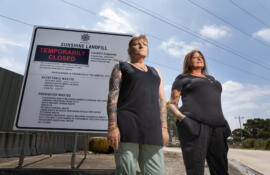‘Children who experience stuttering are often unfairly judged by an unfortunate stereotype. Their difficulty in speaking fluently can be seen as an indicator that they are not smart enough to find the right words.

By contrast, many parents of children who stutter have reported that their children had a burst of language development directly before they saw signs of stuttering. They claim that their children started using new words and longer sentences, suggesting that their stuttering was a result of a language overload rather than a deficiency.
This claim is supported throughout the research literature; with studies confirming that stuttering typically emerges in children during a time of rapid language growth. As a result of these findings, there has been substantial interest in the interaction between stuttering and language development in young children — both whether the onset of stuttering impacts language development, and whether language development may impact the onset of stuttering.
However, understanding the relationship between stuttering and language development in young children is difficult. Given that each child who stutters is a unique case, with special levels of language ability and stuttering severity, conclusions that are representative of all children can be difficult to draw.
Some studies suggest that children who stutter have delayed language development compared to those who don’t, while other work suggests there is no difference at all. My research demonstrates that, in some cases, children who start to stutter can have advanced language skills when compared to children who do not stutter.
This lack of clarity and consensus in the academic literature is what originally drove my interest in the area. The thrust of my research was to seek a clearer understanding of the relationship between stuttering and language ability.
Many parents of children who stutter have reported that their children had a burst of language development directly before they saw signs of stuttering. They claim that their children started using new words and longer sentences, suggesting that their stuttering was a result of a language overload rather than a deficiency.
My experience in the field was crucial in allowing me to achieve this. I am a speech pathologist by training and I worked as a research assistant with the Murdoch Childrens Research Institute on its Early Language in Victoria Study (ELVS) and its concurrent stuttering study (ELVS-Stuttering).
I was interested in taking on a PhD at the time and I was in a unique position to work with a sample of children that was not normally the focus of studies in this area.
The ELVS study has been tracking the language development of a large community cohort of Australian children since 2003, with a sample size of 1910 children. The children were recruited at eight months of age and their language development was tracked throughout their pre-school and primary school years.
When they turned two years of age, the children were invited to take part in the ELVS-Stuttering study. The parents were sent information about stuttering and were asked to contact the research team if their children exhibited any stuttering behaviours.
When a parent called the research team to say, “I think my child is stuttering”, that report was then verified by a speech pathologist. Those children who did stutter became a part of the ELVS-Stuttering study. My research focused on a sub-sample of 66 children from this study.
For my study, we interviewed the parents and video-recorded them playing with their children during home visits conducted at monthly intervals over the first 12 months following their stuttering onset. We analysed their language use and stuttering severity and conducted formal language tests on children between the ages of two and five. This allowed us to gain a more complete picture of each child’s language ability.
The results were both surprising and interesting.
On average, the children in my study had a mild level of stuttering. I found that these children had language skills that were developing normally and were actually above expectations for their age. I found that the children who started to stutter actually scored higher on language assessments than those who did not start to stutter. The language sample analysis showed similar results.
Overall, the results also showed no evidence of language development being negatively influenced by the onset of stuttering. If the group had severe stuttering, these results might have been different.
Unsurprisingly, these results have drawn criticism.
Overall, the results also showed no evidence of language development being negatively influenced by the onset of stuttering. If the group had severe stuttering, these results might have been different.
Many are sceptical of the ELVS-Stuttering study and its ability to be truly representative of children who stutter. Others simply disagree with my finding that children who stutter could have normal-to-advanced language ability.
However, with so many competing theories about language development in children who stutter, these criticisms were not surprising.
Regardless of these criticisms, my results suggest that at least in the early stages of stuttering, a child’s language is likely to be developing normally for their age.
While these results alone do not provide a complete picture of the relationship between stuttering and language development in children, I believe they have provided an interesting contribution to the field.
Hopefully, with continued research in this area, we can gain further clarity around the relationship between stuttering and language development in young children.
The better we understand the impact of stuttering on young children, the more effective we can be in helping children with this potentially debilitating communication disorder. ’
Amy Watts’PhD is titled: “Language development in young children who stutter.”
*My PhD is an irregular series in which The Citizen speaks with recent Melbourne University PhD graduates.


